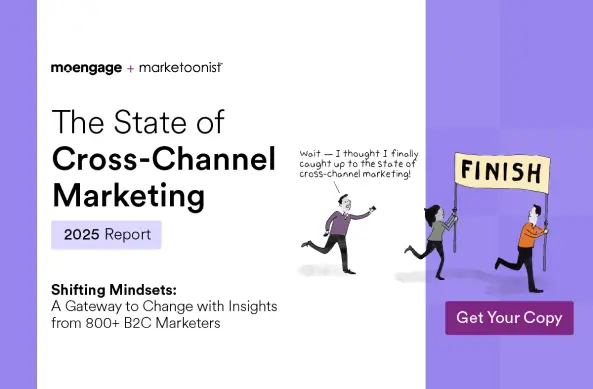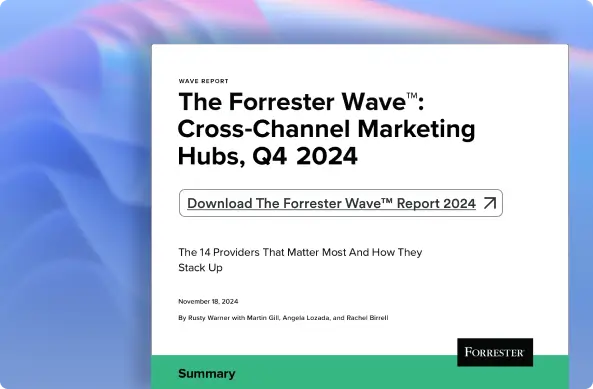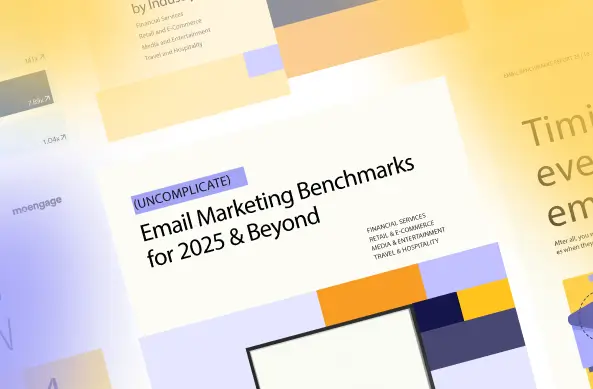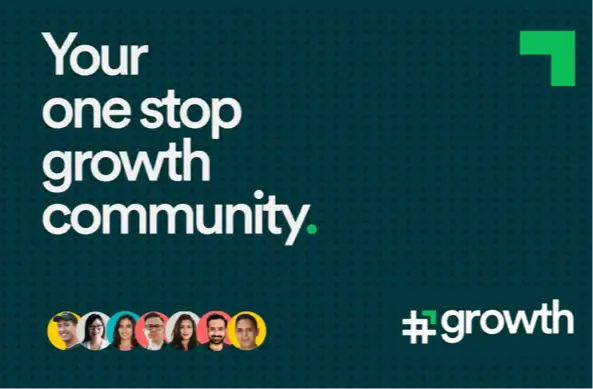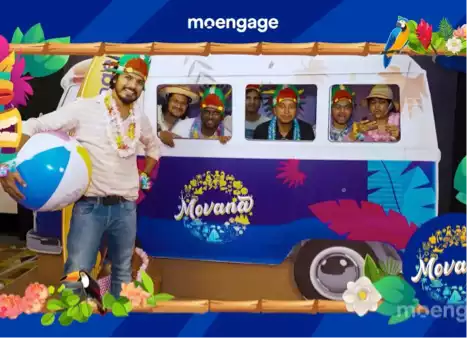Ecommerce Push Notifications: 13 Templates to Boost Engagement
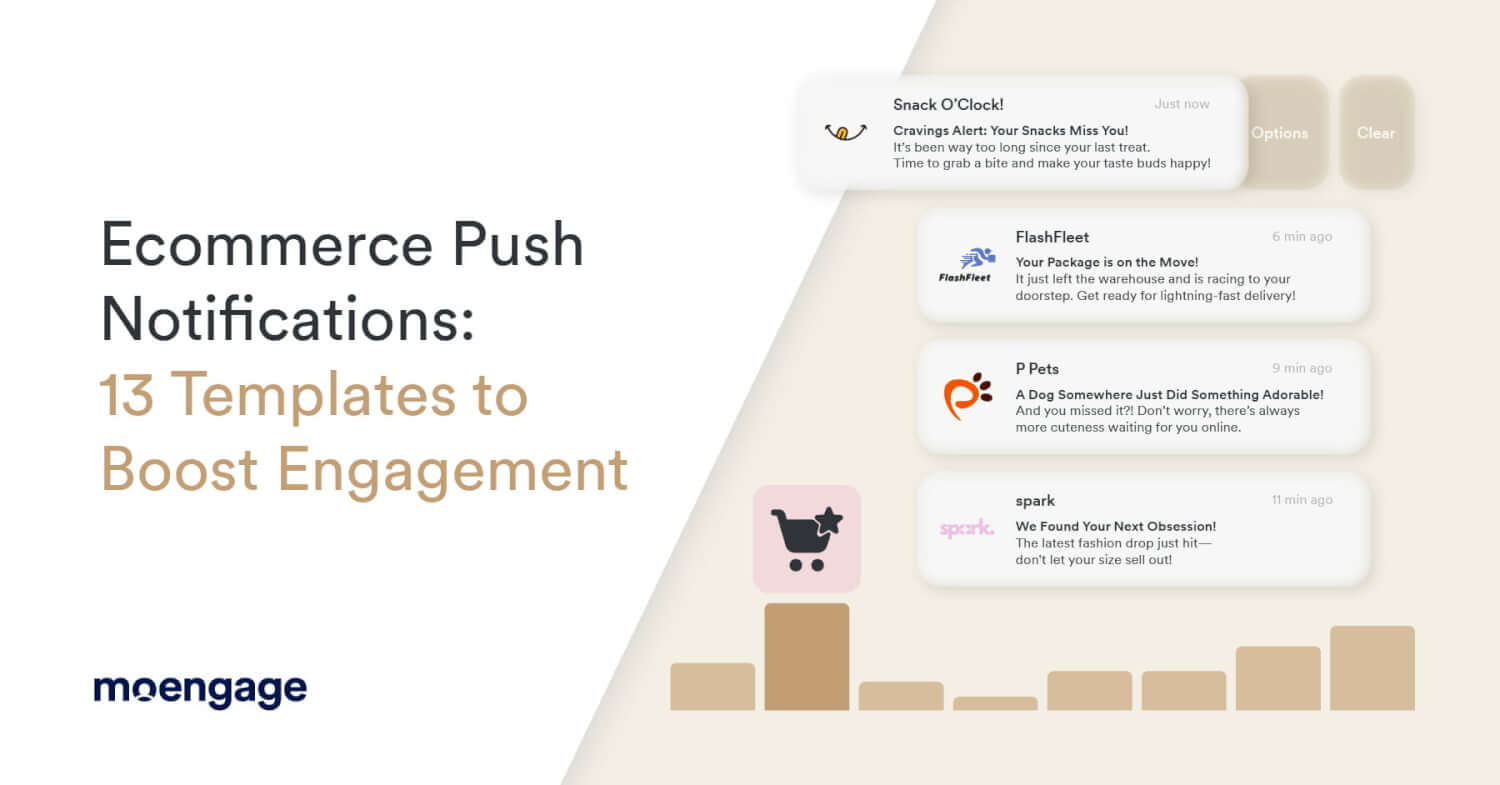
Reading Time: 18 minutes
Ecommerce is a battlefield. You either capture attention, drive action, and convert—or you drown in the noise. Most brands throw money at ads, churn out forgettable campaigns, and hope for the best.
But hope isn’t a strategy.
If you want results, you need a system that moves people from “just looking” to “I need this now.” To do this requires tailored touchpoints through ecommerce push notifications and other channels, innovative campaigns, conversion-focused templates, and a strategy crafted for real people—not just algorithms.
And this isn’t about throwing spaghetti at the wall. It’s about precision, promptness, psychology, and smart automation. In e-commerce, it’s not about who shouts the loudest.
It’s about who connects the smartest.
If you’re serious about scaling your ecommerce business, keep reading.
Here, we’ll break down the essential campaigns and proven push notification templates that turn passive visitors into loyal customers.
What Are Ecommerce Push Notifications?
Ecommerce push notifications are real-time messages sent to users’ devices—mobile, desktop, or web—to drive engagement and conversions.
They deliver timely updates, promotions, and personalized offers, keeping customers connected with your brand even when they aren’t actively browsing your site.
Why Should Ecommerce Marketers Use Push Notifications?
Most marketing channels compete for eyeballs—emails get buried in crowded inboxes, ads go unwatched, and social networks become a scroll of no return.
But push notifications? They cut through the chaos, reaching customers instantly, at the right time, and with the right message.
And the data backs it up: while delivery rates for broadcast push notifications in many industries have slowed, retail stands out with a steady increase—from 70.8% in Q1 to 74.8% in Q3 2023.
So, what makes them so effective?
It’s their immediacy, relevance, and ability to meet customers where they are—on their devices. More than just another message in an inbox or an ad to skip, push notifications are timely nudges that grab attention and drive action when it matters most.
Here’s why push notifications are a necessity for ecommerce:
1. Instant Visibility & High Reach
Imagine a customer lingering over a sneaker but not buying it. Hours later, a message chimes in: “Still want those shoes? Get 10% off—today only!” Unlike unsent messages, messages appear in a device, eliciting a reaction in real life, in real time.
2. Personalized Customer Interaction
Generic messages don’t work. Personalized push messages such as “Hey Sarah, your preferred moisturizer is in stock again” resonate at a deeper level. Customers feel noticed, and sales become a high probability.
3. Higher Click & Conversion Rates
Push notifications outpace ads and emails in terms of engagement. With a timely message, for instance, “Your cart is full! Complete your purchase and enjoy free shipping,” it engages uncertain buyers, converting hesitation into buying behavior.
4. Cost-Effective Retargeting
Reaching past visitors comes at a cost with sponsored ads. Reengagement is free with push messages. A simple, one-click message like, “You left an item in your cart—ready to complete your purchase?” can help you recover sales effortlessly, without extra retargeting costs.
5. Boosts Customer Retention
Loyal customers drive long-term success. Push messages remind them about your store with messages like “Your order shipped! Track it” or “Early access to our new collection—shop now.” Little prompts drive repeat buys and build loyalty.
Now that we understand why push messages have such a significant impact, let’s discuss the types and how each one can drive sales and engagement.
What Are the Different Types of Ecommerce Push Notifications?
Not all push notifications serve the same purpose. Some aim to drive sales, others are meant to boost engagement, and a few simply keep customers informed. Understanding these types helps ecommerce marketers send the right message to the right customer at the right time.
Here’s a breakdown of the most effective push notification types and their impact on engagement and retention:
Rich Push Notifications
Rich push notifications go beyond plain-text messages by supporting images, videos, and multiple calls-to-action (CTAs), making them visually appealing and action-driven.
Why they work:
- Eye-catching visuals increase click-through rates.
- Multiple CTAs give customers more ways to engage (like “View Sale” or “Shop Now”).
- Emojis can create a friendly, conversational tone.
Example:
“Price Drop Alert! Your wishlist item is now 30% off. Tap to grab it before it’s gone!”
Abandoned Cart Push Notifications
Cart abandonment costs the ecommerce industry billions. These notifications remind shoppers about the items they left behind, encouraging them to complete their purchase.
Why they work:
- Create urgency with messages about limited stock or expiring discounts.
- Personalized reminders help bring back hesitant shoppers.
- Segmented targeting makes the message more relevant based on browsing behavior.
Example:
“You left something behind! Your cart is still waiting—checkout now before your items sell out.”
Informational Push Notification
These are non-promotional alerts that keep customers engaged with relevant updates, such as:
- Stock availability updates
- News alerts
- Event reminders
Why they work:
- Keeps customers informed without being spammy.
- Builds brand trust by providing value beyond promotions.
- Encourages app and website visits.
Example:
“Back in stock! The sneakers you loved are available again. Tap to shop now.”
Reminder Push Notifications
Sometimes, customers just need a gentle nudge to complete an action—whether it’s updating their profile, redeeming a coupon, or taking advantage of a limited-time deal.
Why they work:
- Helps recover lost conversions by re-engaging inactive users.
- Strengthens retention by keeping your brand top-of-mind.
Example:
“Last chance! Your 20% discount expires in 2 hours. Don’t miss out—use code SAVE20 now!”
Transactional Push Notifications
These provide real-time updates on orders, subscriptions, and payments. Customers anticipate these notifications and tend to engage with them at high rates.
Why they work:
- Builds trust and transparency with customers.
- Reduces support queries by proactively providing order updates.
- Enhances the post-purchase experience, which fosters loyalty.
Example:
“Your order has shipped! Track your package here: [link].”
As you’re probably starting to see, push notifications can revolutionize your ecommerce marketing—if used strategically.
Up next, let’s explore how to craft high-converting push notification campaigns with proven strategies and best practices.
How to Use Push Notification Campaigns for Ecommerce Marketers: 13 Templates to Use
Push notification campaigns are practical tools for ecommerce marketers looking to drive activity, convert, and have repeat buyers. What’s most intriguing about push notifications is their ability to target users with precise messages at any stage of their customer journey.
So, relevance and timing make a successful campaign successful. To connect with a new customer, remind them about an abandoned cart, or notify them about a key update. Each and every one of them is for a specific purpose and helps build a part of a whole customer journey.
Let’s break down the use cases below:
- Push Notification Templates for User Activation
- Push Notification Templates for Converting Abandoned Carts
- Push Notification Templates for Notifying Customers
With these in mind, we can explore how to develop effective push notification campaigns and templates to make your ecommerce marketing successful.
Ecommerce Push Notification Campaigns and Templates for App User Activation
The goal of an activation campaign is self-explanatory: to get a user to take action in your app, getting them through signup and first purchase. To make your new users become long-term, loyal ones, getting them early is essential, and one of the best tools for moving them toward behavior is a well-placed push message (or series of them).
- Objective: Get a user to complete the signup process and make their first purchase on your app.
- Campaign Duration: 7 days (1 week)
- Trigger: App installation
- User Data You Need to Track: App launches, registrations/signups, products viewed, categories browsed, cart status, notification opt-outs
- Preferred Marketing Channels: Push notifications, email, SMS
Note: Once a user attains campaign success—signing up and first purchase, respectively—they are removed from the campaign. This focused, multi-channel campaign brings you in contact with the user in the most effective position for them to become engaged and brings them in as loyal buyers.
Now, let’s have a look at campaign types that will enable you to activate your users and drive purchases in a timely manner. You’re looking for your users to sign up and make a first purchase in your app.
1. 15 minutes after app install
The first few moments after someone installs your app are critical. If users make a purchase within 24 hours, they’re far more likely to stick around, buy again, and even become loyal advocates for your brand.
To make the most of this window, send a welcome notification within the first 15 minutes after installation. If they’ve signed up but haven’t completed their first transaction, this is the perfect time to nudge them with a welcome offer or a helpful reminder.
Note: If push notifications aren’t an option because they’ve opted out, don’t let the opportunity slip away—reach out via SMS or email to keep the momentum going. Early engagement like this can set the tone for a lasting relationship.
Upon clicking, take the user to your product section, where they can browse and make their first purchase.
Tips:
- You can personalize this offer by sending them a code that has a few characters of their name. For example, Alex can receive an offer code ‘ALEX20′ for a 20% discount on their first purchase.
- By adding an expiration date to your custom offer code, you can create a sense of urgency in your users. For example, ALEX20 can be set to expire 24 hours after creation.
- Use acquisition data to personalize your discount offers. For example, if a user has installed your mobile app after viewing an ad for shoes on Instagram, a discount should be offered on a selected collection of shoes.
You can use this template for your push notifications:
Welcome <first_name>! Use <personalized_code> on checkout to get <offer_amount> off. Hurry, offer ends in <expiry_time>. Shop now!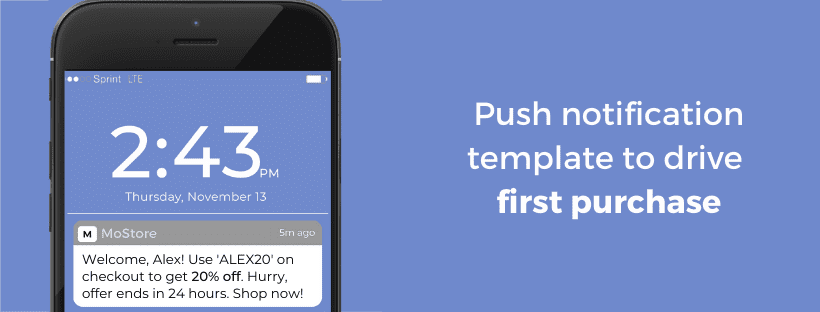
2. 24 hours (1 day) after app install
If a user has not completed the signup process 24 hours after installation, send them a push notification nudging them to create an account and register with you. If a user has disabled push notifications, send an email or a text message (SMS) instead.
Here are a few ways to convince your users to sign up:
- Provide free shipping to users who have completed the registration process
- Give the option to save a user’s shipping address and preferred mode of payment for an easier checkout if they create an account
- Tell your users that they will receive discounts and offers for upcoming sales and notifications whenever a new collection is added to your e-commerce mobile app
Here is a preset template for your push notifications:
Hey <first_name>! Create an account and unlock free shipping for your first two orders. Sign up now!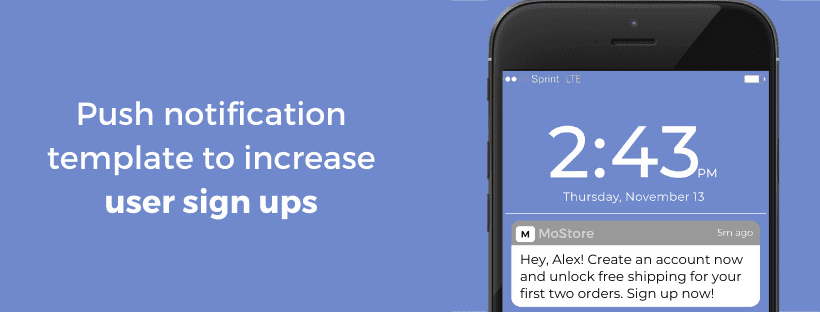
If you have any trending products that are available for pre-order, and the user has browsed similar categories, you can send out notifications to new users within 24 hours. Pre-orders are a great way to increase sales, active users, brand affinity, and eventually retention. Sync up with your partnership teams to time these campaigns for maximum ROI.
3. 48 hours (2 days) after app install
To all users who haven’t performed a transaction on your mobile app 48 hours after installing, send notifications informing them of your top trending products. It doesn’t matter if your users have signed up on your app, send these notifications to everyone.
Visual assets add flair to your notifications.
More and more ecommerce brands have started sending rich media notifications (adding images and videos) and have observed a higher click-through rate (CTR) than text-only push notifications. Implementing these also gives you an edge over competitors who aren’t doing this already.
You can directly use this push notification template:
Hey <first_name>, <product_name> is the new fad! Have you gotten yours yet? Order now!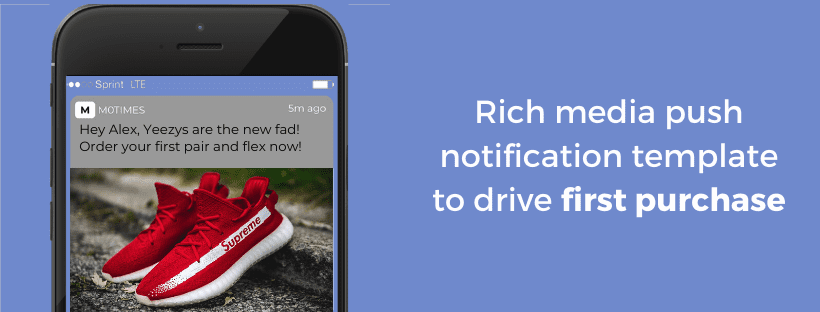
As your user and inventory list increases, manual recommendations get less and less feasible. This is a classic build v buy dilemma. You can either:
- Invest resources in developing machine learning algorithms to drive product recommendations or
- Use tools like MoEngage that can recommend relevant products automatically based on data
To get more info on this, you can check out our webinar on app retention where we spoke about this in more detail:
4. 96 hours (4 days) after app install
Take the same segment of users you targeted 48 hours ago, remove the users who completed their first purchase, and send them another notification that showcases your top trending products. This is an opportunity to induce FOMO in your users – the desire to stay connected with what others are doing around them.
Leverage your users’ browsing behavior and customize your notifications accordingly. You can pick the latest browsed category or the first category that attracted the user in the first place for these notifications. Remember to run A/B tests (split tests) to prove your hypotheses.
Push notification template you can use for this:
Hey <first_name>, everyone has grabbed their <product_name>. Hurry and get yours before stocks run out!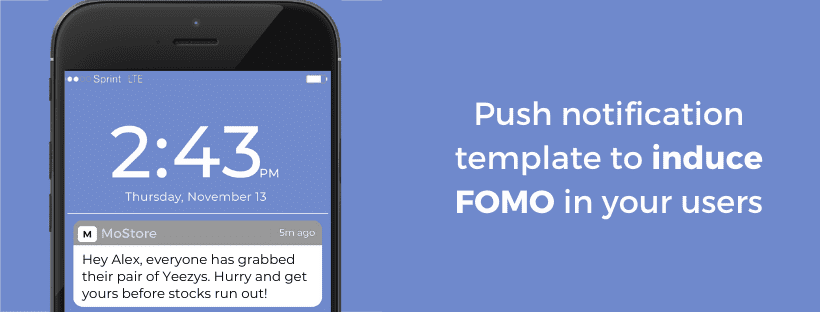
5. 144 hours (6 days) after app install
Users who do not complete a transaction in the first week, have a very low retention rate. This means that this is your last opportunity to drive purchases from your mobile app users.
Identify users who haven’t completed their first purchase 6 days after installation, and send them a push notification offering them a discount. The discount can be offered by marketing it as a ‘first order discount’ or a ‘welcome bonus’.
Here is a template for the push notification you can use for this:
Hey <first_name>, get a flat 20% off on your first order. Hurry, offer expires in 24 hours!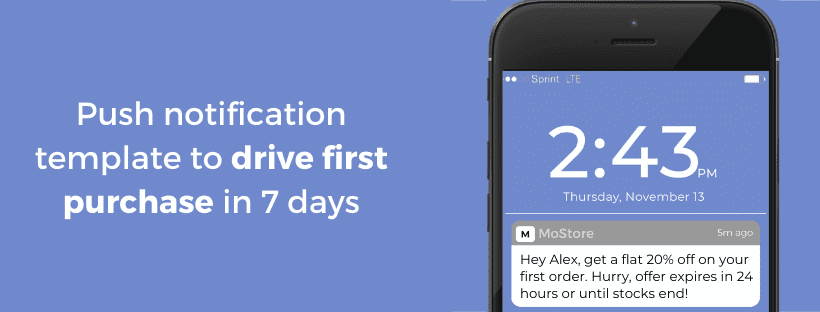
Campaign and Notification Templates to Convert Abandoned Carts to Purchases
Abandoned carts represent a key opportunity for marketers in ecommerce to win potentially foregone sales. It’s well-known that a significant portion of customers add items to their cart but don’t complete the purchase. Recovering such cart abandonment is critical, as it can generate additional revenue, maximize value for a customer, and boost overall sales performance.
With effective push notification campaigns and techniques, one can reapproach users at the proper time, remind them about cart-left items, and compel them to make a purchase.
- Objective: Get a user to complete a transaction on your app.
- Campaign Duration: 4 days
- Trigger: Item added to a cart
- User Data You Need to Track: App launches, products viewed, categories browsed, cart status, notification opt-outs
- Preferred Marketing Channels: Email, Push notifications, SMS
Note: Every time a user meets the objective, they are immediately removed from this campaign.
Such a campaign aims to remind users to return to their cart, make them act immediately, and remind them of what they will get after completing the purchase. By sending a combination of push, SMS, and email at perfectly timed times, one can avoid cart abandonment and compel visitors to make a purchase.
Now, let’s dive in and have a look at some key strategies and blueprints that can make your carted visitors become completed purchases.
6. 1 hour after an item is added to the cart
When a user adds items to their cart, it denotes an intent to purchase. You need to capitalize on this before they change their mind. If a user has not completed a purchase one hour after adding an item to a cart, send them a reminder through a push notification.
As a general rule of thumb, you can prioritize trigger-based campaigns more than scheduled ones. This ensures that your communication is always relevant and focused on high-intent users.
You can personalize this notification by adding the name of the user to the message.
Check this push notification template out:
Hey <first_name>, you left something behind. No need to worry – we've saved your cart for easy checkout.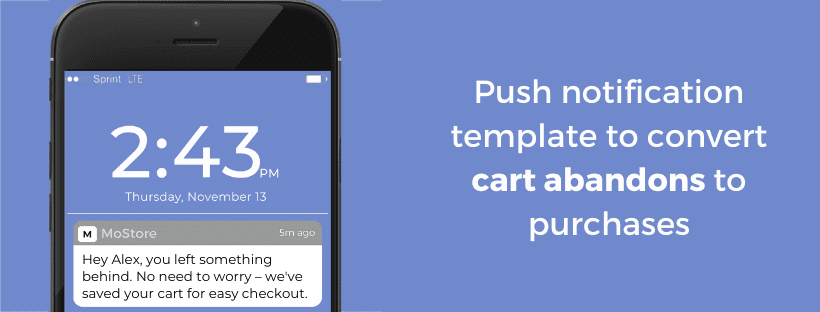
5 hours after an item is added to the cart
If your earlier notification has not been delivered, use other communication channels to deliver your message. There can be several reasons behind an undelivered notification – maybe the user has opted out, or their device was not connected to the internet, or maybe a frequency cap was enabled on the campaign from your end.
Emails and text messages (SMS) are a great way to notify users about abandoned carts. Here are some interesting stats about cart abandoned emails from MooSend:
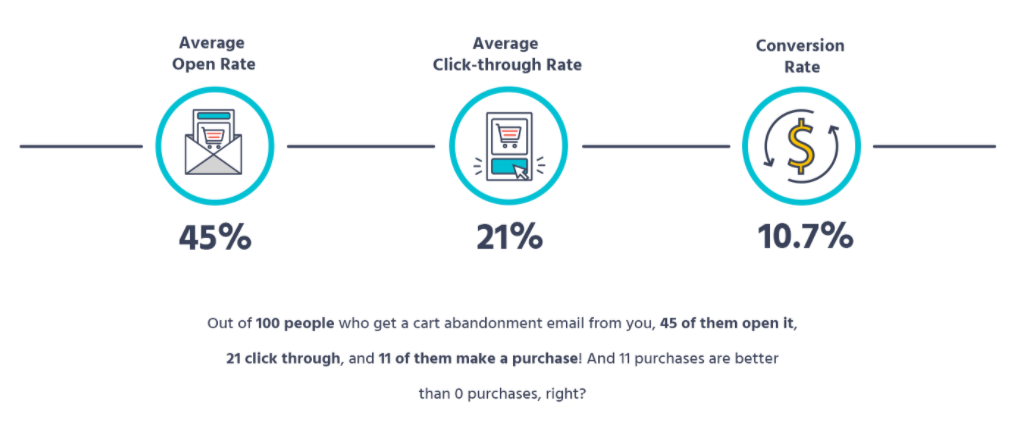
7. 24 hours (1 day) after an item is added to the cart
Even after receiving the above notifications, if a user has not proceeded to purchase the items in their cart, send them another reminder 24 hours later.
This can be a price drop alert, where you offer a small discount to nudge your users to complete their purchase. You would ideally want to create a price buffer before you do this. This buffer will determine how much discount you can give without it causing a big hit to your revenue. A rule of thumb is to always have your cost of acquisition (CAC) lesser than a user’s lifetime value (LTV).
Use this push notification template for this:
Price drop alert: Hey <first_name>, there is a flat 15% off on <product> valid only for the next 12 hours, hurry!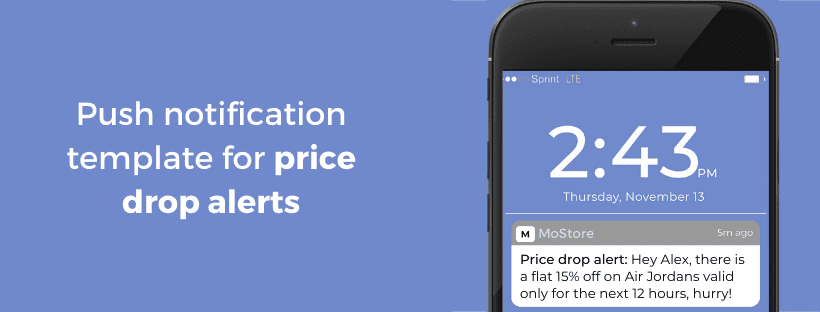
It is also a good idea to invest in social advertisements at this stage, particularly retargeting ads. Use the information you’ve collected (product name and category), to create image/video ads for social media platforms like Facebook, Instagram, Twitter, or the Google Display Network.
This advertisement will be shown to all users who have abandoned a particular product or category in their cart. Hence, it is a good idea to run social campaigns for products that are in high demand, or that have a high abandon rate.
8. 96 hours (4 days) after an item is added to the cart
The last reminder in this campaign is to be sent four days after a user has abandoned their cart. A good way to convert cart abandons into repeat purchases is by showcasing user reviews.
Deeplink the customer reviews to your notification, so when a user clicks on your message, they can directly check out the positive reviews for the product they’ve added to their cart. If there are multiple products, pick the one with the most positive reviews.
Here is a template you can use:
Hey <first_name>, users are raving about their <product>! Check out the reviews and get yours now!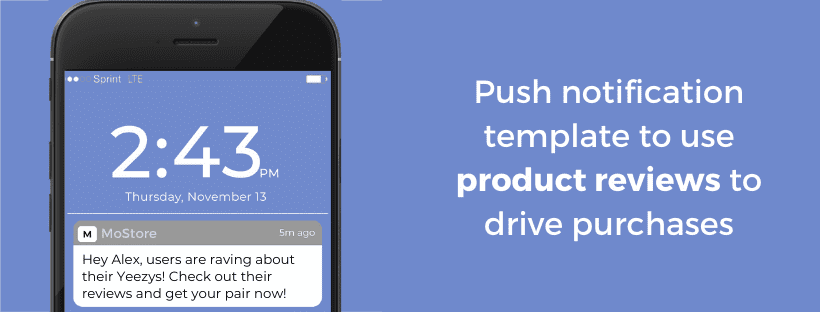
Campaign and Notification Templates to Inform Users About Order Status
Keeping customers in the loop regarding orders is a key part of providing a positive overall customer experience. Given today’s fast pace of ecommerce, buyers require real-time information and transparency regarding purchases.
Order status messages can build trust, calm tension, and even increase overall happiness for your customers. By providing timely and relevant information, you will notify your visitors and save them a trip to your support crew.
- Objective: Get a user to complete a transaction on your app.
- Campaign Duration: Depends on shipment status
- Trigger: Purchase completed
- User Data You Need to Track: Product name, product category
- Preferred Marketing Channels: Push notifications, email, SMS
Note: It’s crucial to map the status of the order to a platform like MoEngage or any other automation tool you’re using to run your campaigns. In case the order status isn’t mapped, then messages will go out at the wrong time, and your customers will become confused, frustrated, and will produce a lot of additional customer service tickets.
In this campaign, your purpose is to inform your users at every stage, beginning with processing, shipping, and then delivery. By sending triggered messages with real-time information, you can develop a perfect journey that keeps your buyers in control and appreciated. Let’s go and have a glimpse at some effective notification samples that will notify your buyers at every stage.
9. Immediately after an order is successfully placed
As soon as a user places an order (in the case of online payments, it will be right after the payment is made), show an in-app message to confirm that the order has been successfully placed. Also, make sure you send an email with the following information:
- Order number or invoice number
- Mode of payment
- Order details – Product name(s) and quantity
- Expected date of delivery
- An option to talk to your customer support team
Since all of this information cannot fit into one text message or a push notification, you can use this template instead:
Hey <first_name>, your order is successfuly placed! View your order details here.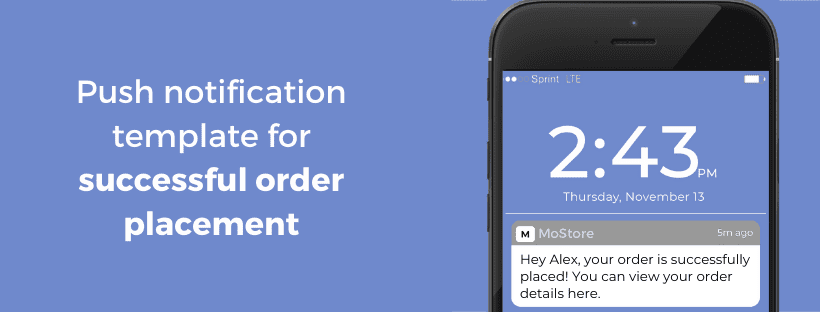
When the user clicks on this and opens your app, you can show all the above information.
10. As soon as an order is shipped
Send an update as soon as the order is shipped from your warehouse by mentioning it is on its way. If you have live tracking enabled, you can share the link with the user.
Use this template for your push notification:
Hey <first_name>, your order is shipped and is on its way! You can track the live status here.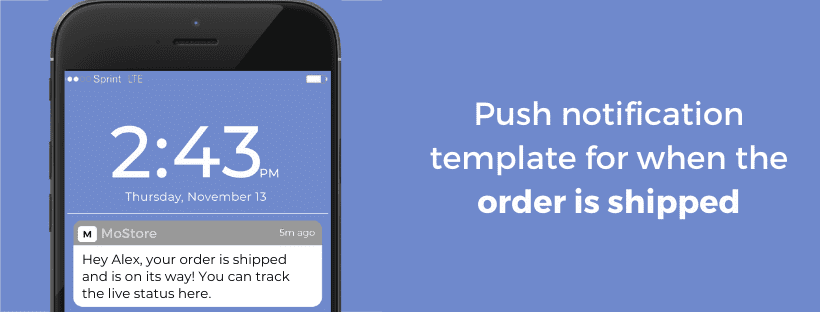
11. On the day of the delivery, hours before the order is delivered
At this point, it is a good experience for your users if you inform them the order is due to be delivered in a few hours. You can also give the option to your users to drop their delivery off with their neighbors if they aren’t available, or delay it by a few hours according to their convenience. It is also a good idea to send this via email – office-goers are more likely to check their emails as well.
You can use this template for your notification:
Hey <first_name>, your order will be delivered today! Not at home? No worries, inform us here.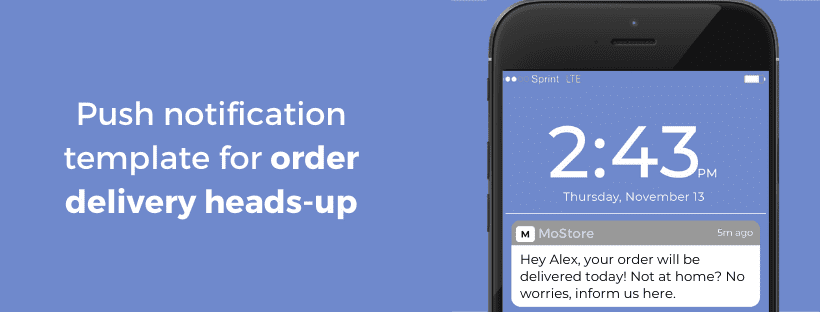
12. On successful delivery
Make sure you send a push notification, an email, and a text SMS to inform the user that their order has been successfully delivered. Now is also the right time to ask for a review of your app on the app store listing. Also, do not forget to give an option for the user to contact you in case they haven’t received their order.
Here is a template you can directly use for your push notification:
Hey <first_name>, your order has been successfully delivered! Not received it? Let us know.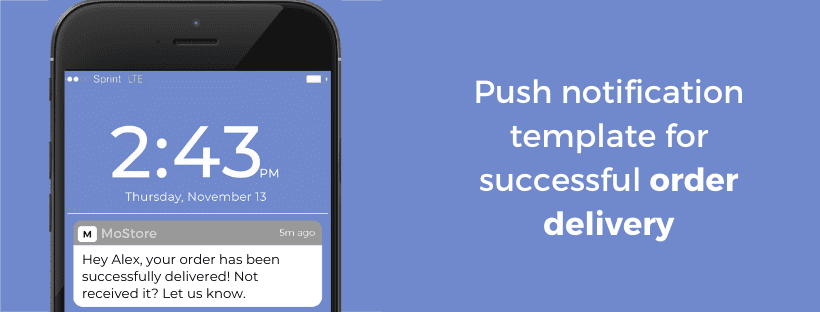
13. On order cancellation
When a user cancels their order, it is important that you acknowledge it and then ask them the reason behind the cancellation. You can do this via a survey form that you can send via emails, or you can create the survey inside your app, and drive users there via text messages (SMS ) and push notifications.
Users tend to be more responsive when you give them a list of reasons upfront instead of asking them to explain the reason behind the cancellation. Here are a few points you can add to your form:
- Found a better offer elsewhere
- Do not need the product anymore
- Wasn’t available to collect order during the time of delivery
- The product was expected to be delivered sooner
- Received bad reviews from a friend/family member
- Ordered as a gift for someone else and they didn’t like it
- Other (ask the user to explain this)
You can use this template for your push notification:
Hey <first_name>, your order has been canceled. Let us know where we went wrong by taking this short survey.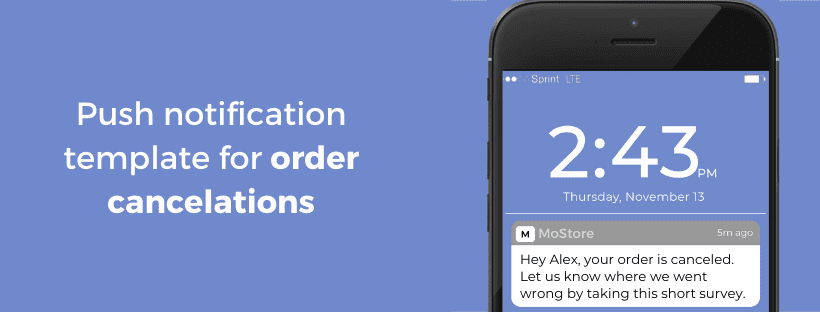
You can also give some incentives for users to fill out this survey – like maybe waiving off the delivery fee for the next order.
7 Ecommerce Push Notification Best Practices
Now that you have some templates to use, here are a few key push notification best practices that can allow for effective use of push messages and maximize impact for ecommerce companies.
1. Personalize your Notifications
Customers respond well to messages that speak to them and sound personalized and relevant. Personalize push messages with information about a customer, including browsing, purchase, location, and preference. For example, when a customer purchases shoes regularly, inform them when a new collection comes out or when a desired size comes in again. Personalization in such a way maximizes the chance for them to react to your messages.
2. Timing Matters
Sending notifications at the ideal time can make your campaign, and sending them too early or too late can break your campaign. Don’t miss your target and have your message go in vain. Monitor your user behavior and send timely messages like cart abandonment reminders and flash sales when your users will most likely react to them. You will strike gold by analyzing your customer behavior and being aware of your peak times.
3. Keep it Short and Interesting
Push notifications have to be direct, simple, and concise. There is a risk in putting in too much information, and it will drive your users insane. Get your message out with your most important message—be it a one-time-only discount, a restock, or a one-time-only opportunity—and make it easy for your user to act in a timely manner. Use strong, direct language and simple terms such as “Shop Now,” “Claim Your Offer,” or “One-Time Offer” to drive more activity.
4. Incorporate Rich Media (Images and Videos)
As noted earlier, rich push messages—pushes with images, videos, or carousels of products—will boost your engagement rates immensely. Adding an image or a video to a message will make it a picture, and a picture will make your message stand out and have a high chance of getting a tap through. For example, an image of a product in a message will make a user tap and view it in detail.
5. Create Urgency But Don’t Overwhelm Them
Urgency works best in converting, but use it in moderation. “Hurry, 2 hours only” and “Stocks in short supply” types of messages can evoke a sense of urgency and compel your visitors to act in a timely manner. But too many urgent messages can sound sales-pushing and make your visitors opt out. Use urgency selectively and responsibly in a way that won’t drive your visitors off.
6. Segment Your Audience for Greater Relevance
Not all your buyers are similar, and neither will your push messages ever be. Segment your audience in terms of purchase behavior, activity level, demographics, and even web behavior. Personalize your messages in terms of each group’s individualistic interests, requirements, and buying journey to make your messages meaningful and effective.
7. Respect User Preferences
Not all of them will opt for getting push messages, and that is perfectly acceptable. Tell them explicitly about the types of messages that will arrive when they opt in, and give them full access to them at all times.
Let them customize the types of messages that will arrive, for instance, promos, order updates, or product recommendations. Respect them, and it will gain their trust and make your app their go-to choice in the long run.
Wrapping Up: Ecommerce Push Notification Campaigns to Try
Let’s be honest—how many times have you lost a potential sale because you didn’t catch your customer’s attention at the right moment? Push notifications are your chance to fix that.
More than a marketing tool, ecommerce push notifications are your direct line to customer action. They’re fast, they’re personal, and they have the power to drive your revenue when done right.
But it’s not just about sending messages. It’s about timing, relevance, and the right message that resonates. With heightened user activation and cart conversions recovered, any push message can become a game-changer when utilized effectively.
But don’t stop yet. The best push campaigns adapt, evolve, and get smarter over time. So, if you’re ready to seriously ramp up your ecommerce game, it’s time to level up your push notification strategy.
Check out MoEngage’s Personalized Push Notification Solutions and see how it can drive real results. Want to see us in action? Try a demo and experience it for yourself.

